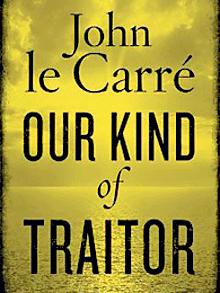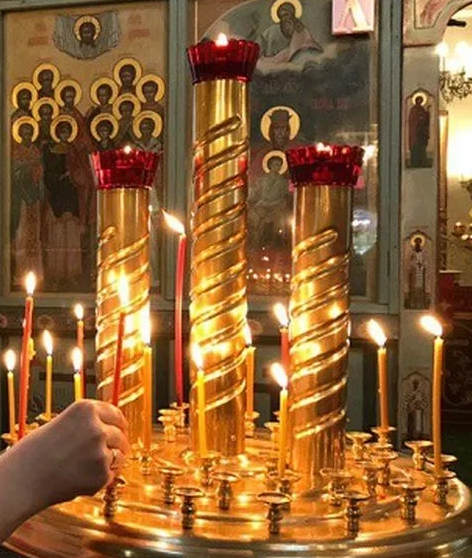
Le Carré books stand out from the crowd. They are atypical in the world of thrillers, and Russia-related thrillers. Not for them the fast-moving plot-based story packed with clichéd characters. Tinker, Tailor, Soldier, Spy is the finest Russia-related espionage novel ever written. (The Honourable Schoolboy runs it very close, but has little to do with Russia). Whether it is a thriller is a different question. It represents rather the thriller as literature.
Our Kind of Traitor has of course the main Le Carré traits, but, like several of his later books, it is a slighter work than his greatest novels.
Here we have some well-drawn characters, almost all at pivotal moments in their lives.
There is Perry, the Englishman with everything going for him —superb tennis player, Oxford don, beautiful girlfriend— but afflicted by the ennui of late youth and approaching middle age; the desire for something more in life.
That more comes in the shape of the opportunity to work for his country, to ‘do some good’ by working with the security services. But Le Carré’s characters tend not to be one-dimensional. Perry is not just doing what he thinks to be right, but is motivated as much, if not more, by associating himself with the aura of secrecy and clandestine adventure apparently to be found in espionage.

The lead Russian character, Dima, is on the surface recognisable in the array of Russia-based thriller character-types —the super-rich oligarch, likely to be found in luxury Carribean hotels, or elite Swiss ski resorts
Dima is also keen to show that he is cultured, and as such overtly besotted with an ideal notion of Englishness.
The Russian oligarch drawn to an ideal notion of Englishness is not an uncommon Russia-in-fiction trait, when that fiction is written by Englishmen. The monologue by James Hawes’s oligarch in Rancid Aluminium represents an exaggerated case in point.
Dima wants to send his daughters to Eton, until he is told that Eton is boys only, so he settles for Roedean. Dima calls Perry ‘the professor’, and bestows a status and character on him a little beyond what is true. Dima does not, however, slot neatly into the figure of the oligarch most often found in Russia-in-fiction thrillers. He is not new money and new Russian, he is an old style ‘thief in the law’, a vor v zakone.
‘I was goddam zek in Kolyma. Criminal, not political. Political is shit. Criminal is pure. Fifteen years I serve there’
‘Fifteen in Kolyma?’
‘Sure, Professor. I done fifteen’.
Our Kind of Traitor, Chapter 7
Dima’s character is reminiscent of Mark Burnell’s Kostya Komarov, who appears in the last three of the excellent Petra Reuter novels. But Le Carré’s Dima, in keeping with the author’s usual approach, hides insecurity and fear behind the swagger.
The British spy figures in Our Kind of Traitor step right out of the classic Le Carré canon in terms of character type.
Hector Meredith, the unorthodox experienced veteran figure, fighting his way back to favour after being out in the cold for refusing to play the game.
Luke Weaver, the young operative in a career hiatus; an adulterer caught between wanting to save his wife and career, and wanting to sleep with the most attractive woman in whatever situation he is in, which in this case is Perry’s girlfriend, Gail.
All very Le Carré in the complexity of characters’ dualling motivations.

All very old-style Le Carré in the Bloomsbury terrace house setting of the de-briefing and control room for the small-scale operation evolving around Perry and the would-be defector Dima.
All very Le Carré in the fact that the operation develops away from the heart of the security service, with the security service chiefs in the shadows, a nagging threat to their own side, as much as to the enemy. (As is the case, for example, in Le Carré’s novel before this one, A Most Wanted Man, 2008).

What we have then is a beautifully drawn set of characters. Even minor figures have an element of depth, such as Dima’s wife Tamara, traumatised by life into obsessive religion; ‘god-smacked’, as she is memorably described.
Le Carré sets up the plot layer by layer, switching backward and forward in time, carefully drawing out circumstances and nuances.
The British security services weigh up Dima’s offer of information for political asylum. Perry and Gail mingle vague senses of obligation, self-fulfilment, and sacrifice. Luke, Hector and their team work out career paths and relationships within the context of the operation in question.
It is terrifically well done.
But, but, but … in the end Our Kind of Traitor seems more novella than novel. If the usual problem with the thriller genre lies in complexity of plot attempting to compensate for paper-thin characters, here the opposite could be said. Without giving the ending away, let’s just say that you should not expect a lengthy denouement. And you certainly should not expect all the loose ends to be tied.
Some might even get the impression that Le Carré just got bored with this book and decided to end it early.